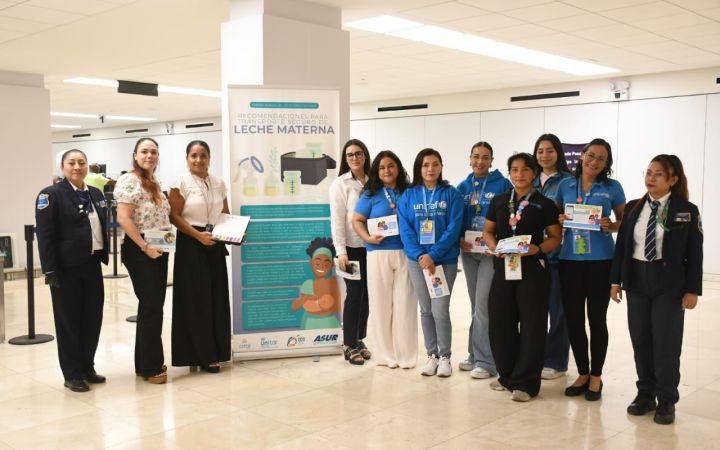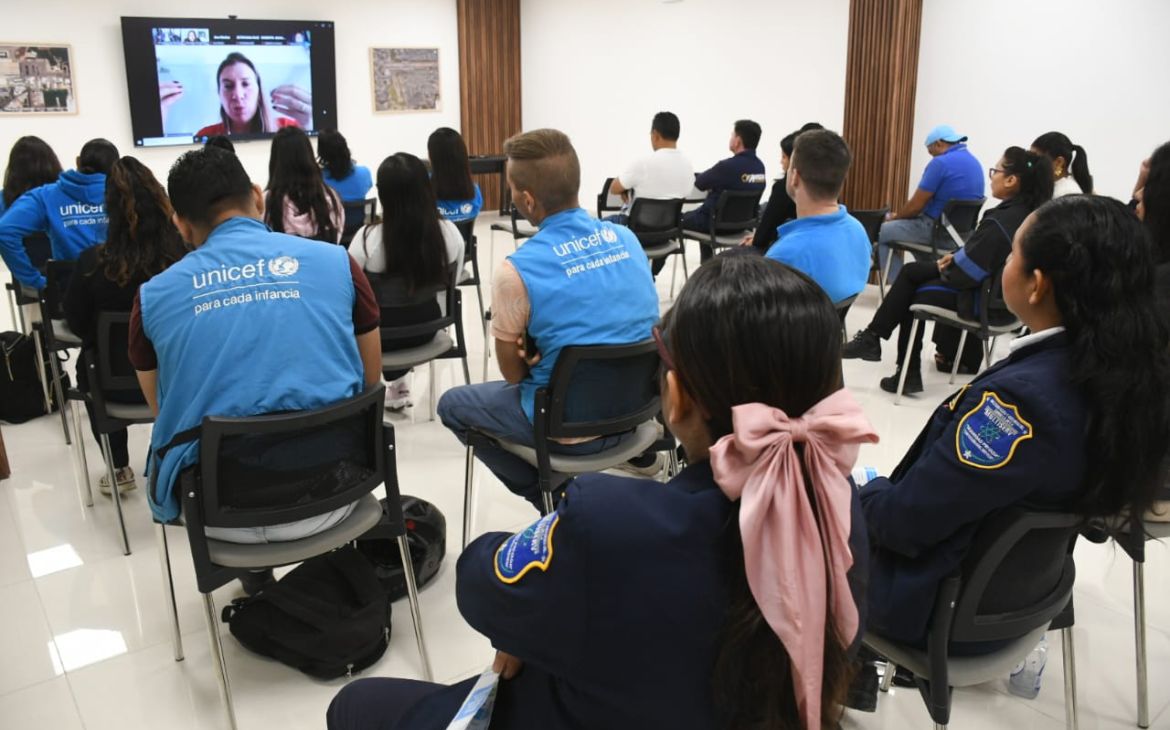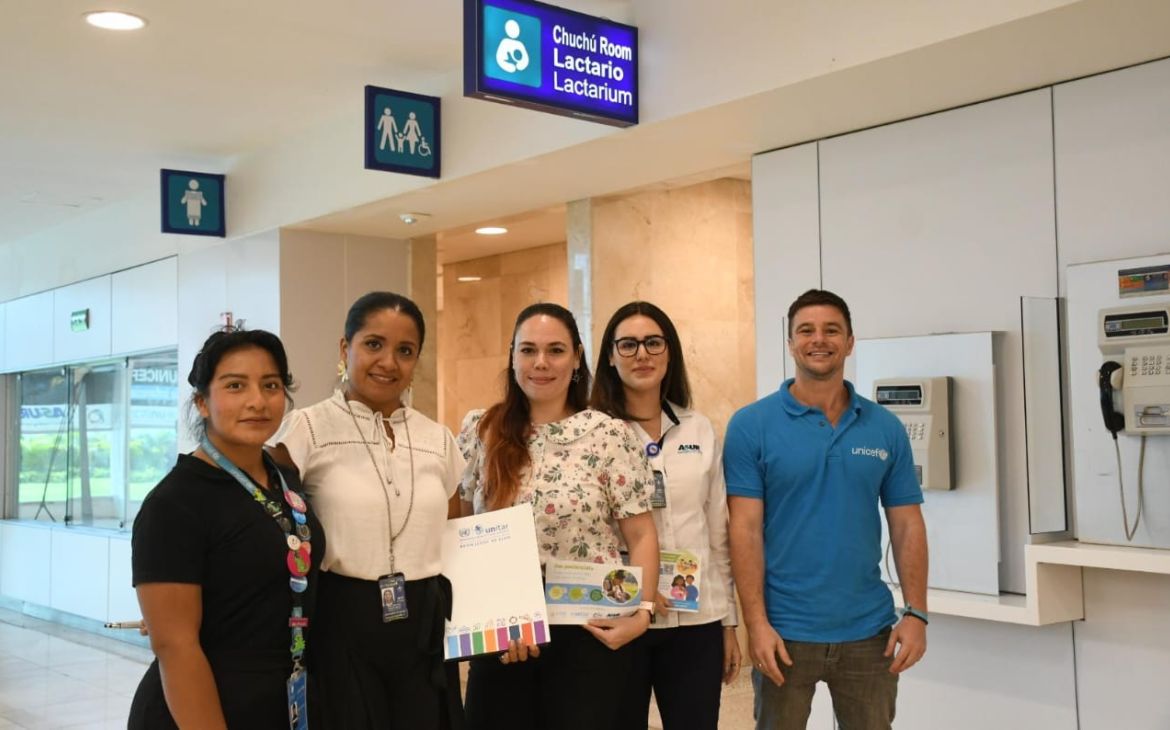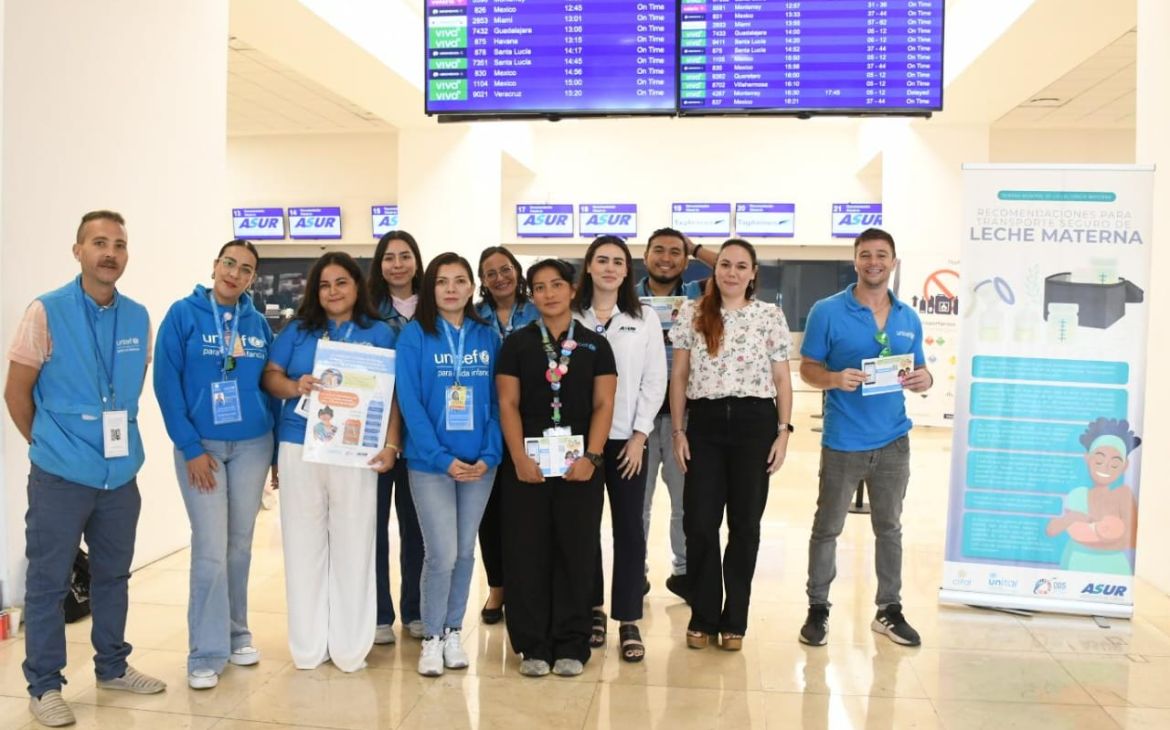15 September 2025, Merida, Mexico - As part of World Breastfeeding Week 2025, the International Training Centre for Authorities and Leaders in Merida (CIFAL Merida), an affiliated training centre of the United Nations Institute for Training and Research (UNITAR), together with Grupo ASUR and UNICEF Mexico, held the webinar “Breastfeeding in Airports: Spaces that Care, Inform, and Support” on the morning of 6 August. The event presented legislative advances and operational challenges regarding the safe transport of breast milk in airport terminals and aircraft, highlighting the key role of airports as safe and supportive environments for breastfeeding mothers.
The webinar was led by Ms. Francesca Romita Iturbe, Corporate Responsibility Officer at UNICEF Mexico, and included the participation of airport staff, airline representatives, airport authorities, and members of the public sector.
During the presentation, it was emphasized that since late 2023, Mexico has had a legal framework supporting the transport of breast milk, thanks to reforms approved by the Chamber of Deputies to the Civil Aviation Law (Section II of Article 47 Bis). These reforms establish that passengers who are breastfeeding, whether or not they are travelling with their baby, may transport breast milk in amounts greater than 100 ml as part of their hand luggage.
It was also noted that while the Civil Aviation Law already recognizes the right to transport breast milk in the cabin, practical implementation gaps remain, as some airports still require the baby’s presence to allow the transport of these liquids, contradicting the spirit of the legislation.
The event was organized by CIFAL Merida, UNITAR, ASUR, and UNICEF Mexico within the framework of the Sustainable Development Goals (SDGs). Participating airports included Villahermosa, Veracruz, Oaxaca, and Merida, which are directed by Mr. Hector Navarrete Muñoz, who has been promoting the creation of lactation rooms in southeastern airports for more than 10 years. In Mérida, these have been named “Chuchú room”, incorporating the Mayan language characteristic of the region.
Together, these actions reaffirm the airport sector’s commitment to equity, child health, and mothers’ rights.





